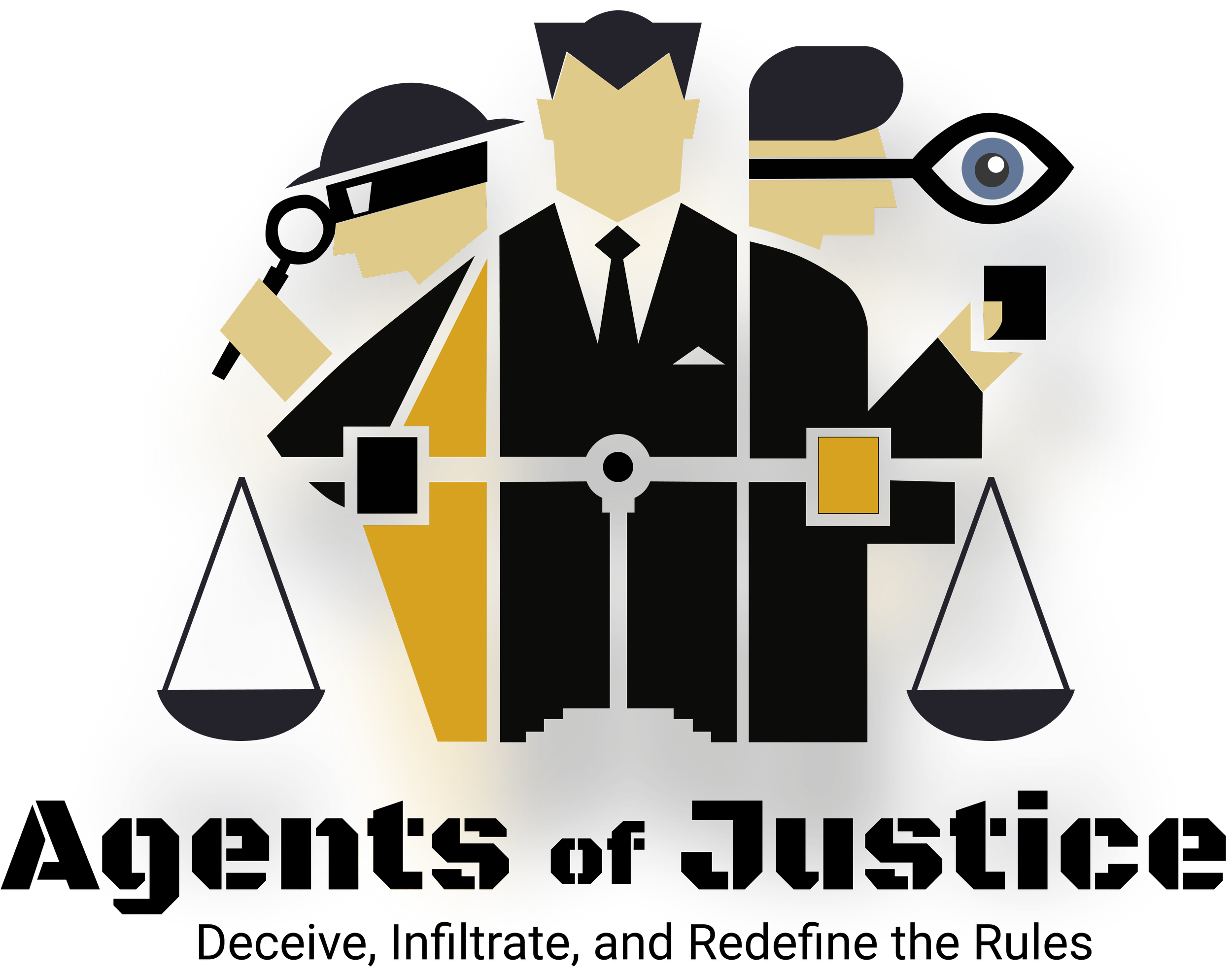Welcome to Agents of Justice, a high-stakes card game where you’ll step into the murky world of espionage, lawmaking, and whistleblowing. Whether you expose dark secrets, pass crucial reforms, or operate from the shadows, every choice you make can shift public trust and change the fate of your nation. Will you uphold justice, or bend the rules to your advantage? Grab your cards, rally your allies, and get ready to play—because the truth is out there, and it’s up to you to decide who gets to see it.
• Players: 4–6 (recommended)
• Roles: Whistleblower(s), Policymaker(s), Surveillance Organization(s)
• Objective: Each role aims to achieve the objective of getting the highest amount of public trust without getting to 0, while preventing other roles from succeeding at their objectives and gaining public trust.
Possible Professions & Roles
1. Academics
• Can be Whistleblower or Policymaker
2. Judge
• Can be Policymaker or Surveillance Organization
3. Hacker
• Can be Whistleblower or Surveillance Organization
(The amount of professions are adjusted based on total players. Each player chooses one profession, which defines their possible roles.)
Whistleblowers
• Primary Goals
1. Reveal critical issues (player misdeeds, covert operations) that lead to major reforms or public backlash.
2. Expose wrongdoing without losing public trust.
• Win Conditions
• Expose all major issues, and make sure the surveillance organisation(s) is held accountable for their actions, without losing all public trust. Getting to a previously collectively established maximum amount of public trust counts as an instant win.
Policymakers
• Primary Goals
Maintain stability, adapt to crises, and pass key laws or reforms.
Balance public trust while managing the demands of Whistleblowers and Surveillance Organisations.
Ensure the other players' compliance to the laws and policies (check players are writing down the correct amount of public trust, executing the right actions after placing cards)
• Win Conditions
• Prevent major crisises and ensure compliance to rules and policies without losing all public trust. Getting to a previously collectively established maximum amount of public trust counts as an instant win.
Surveillance Organizations
• Primary Goals
1. Collect information, run covert operations, and maintain secrecy.
2. Prevent or delay reforms or events that significantly weaken surveillance powers.
• Win Condition Examples
• Avoid having leaks exposed, run covert operations throughout the game and maintain operational secrecy without losing public trust. Getting to a previously collectively established maximum amount of public trust counts as an instant win.
1. Draft System (Professions & Roles)
• Randomly determine a starting player.
• Players pick Professions in turn (Academic, Judge, Hacker).
• Assign or choose Roles (Whistleblower, Policymaker, or Surveillance) based on each profession’s options.
• Each player picks the Role Card nr. 1 (Whistleblower, Policymaker, or Surveillance).
2. Card Distribution
• Crisis and game cards are shuffled into one deck and placed at the centre of the table
• Separate Role-Specific Cards (Policymaker) are pre inserted into the profession pack.
• Each turn the cards are placed face up on the table, and each player has to collect the card with the letter that is short for their role (W,S,P)
3. Public Trust Meter
• Each player gets a card to note down their public trust during the game, with the number 5 on it, which is the amount everyone starts off with.
• At the start of the game all the players agree on a number that sets the maximum amount of public trust, that if reached signifies an immediate win.
Start phase
Players choose their profession, and get assigned their roles.
All players agree on the max. amount of public trust
Playing phase: day
The youngest player starts picking a card out of the stack (crisis and reform cards are immediately placed on the board, in that case the player who picked that card picks a second one from the deck, to always have the same amount of cards as players on the table at the beginning of each night.)
Playing phase: night
All players go to sleep and the youngest starts with the narration (Surveillance wakes up first, then Whistleblowers and last Policymakers.) Narration goes clockwise, just like the turns picking the cards. Each player can choose for themselves how they want to narrate and how much time they want to give each role for their actions (the goal is to be as quick as possible without being caught, or finding a system to create space for everyone)
Playing phase: day...







